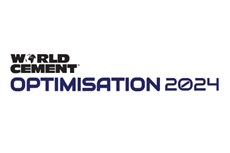Lehigh CCS feasibility study moves forward
Published by Emily Thomas,
Deputy Editor
World Cement,
A low carbon future for cement is advancing through a unique feasibility study to see carbon capture and storage (CCS) in Lehigh Cement’s plant in Edmonton, Alberta. Recognising the substantial role that large-scale CCS has in reducing greenhouse (GHG) emissions, Lehigh Cement, the International CCS Knowledge Centre (Knowledge Centre), and Mitsubishi Heavy Industries (MHI) Group are moving forward with the engineering design for this feasibility study of the cement plant’s carbon capture system.
A first for the North American cement industry, the Lehigh CCS Feasibility Study looks at the viability of capturing 90 – 95% of the carbon dioxide (CO2) - an estimated 600 000 t of CO2 annually – from the cement plant’s flue gas. The study is also a first for each of these organisations in North America all of whom pledge to actively work toward decarbonisation.
The study is timely as the recently released Canada Climate Plan specifically indicates that it will develop a comprehensive CCS strategy and explore other opportunities to help keep Canada globally competitive in this growing industry.
With experience gained through the design, construction, operation, and subsequent enhancements/modifications of the SaskPower Boundary Dam 3 CCS Facility (BD3 Facility), the Knowledge Centre, along with MHI Group and their collaborative work on the Shand CCS Feasibility Study, continue to be at the forefront of post-combustion capture processes globally and see an opportunity for CCS across post-combustion industries.
Due to the remarkable similarities in flue gases, the expertise acquired at the BD3 Facility can be adapted to the cement sector with experienced-based guidance from the Knowledge Centre. The Lehigh CCS Feasibility Study will look to an engineering design that tailors the carbon capture technology owned by Mitsubishi Heavy Industries Engineering (MHIENG), part of MHI Group, so called KM CDR ProcessTM being deployed at 13 commercial plants globally, for integration with Lehigh’s plant and output specifications, such as a flue gas pretreatment system and the carbon capture and compression process.
With cement demand on the rise and as a sector that is challenged with further abating emissions, large-scale CCS could well become the definitive solution to cut GHGs. The Lehigh CCS Feasibility Study explores the value of this for the cement industry, by encompassing engineering designs, cost estimation and an in-depth business case analysis.
“This CCS feasibility study is essential for understanding how our industry can continue to meet growing production demands, while also meeting equally important climate targets," said Joerg Nixdorf, President, Lehigh Hanson Canada Region. "We are proud to be in a position to lead a global change with a crucial clean technology in our industry."
Read the article online at: https://www.worldcement.com/the-americas/27012021/lehigh-ccs-feasibility-study-moves-forward/
You might also like
Rohrdorfer starts ethylene production from carbon dioxide
Following a test phase, production is to be scaled up to an industrial scale, thereby establishing a seamless CO2 circular economy.


